A Q&A with Coyotes analyst, ambassador Paul Bissonnette
May 30, 2018, 12:17 PM | Updated: 1:03 pm
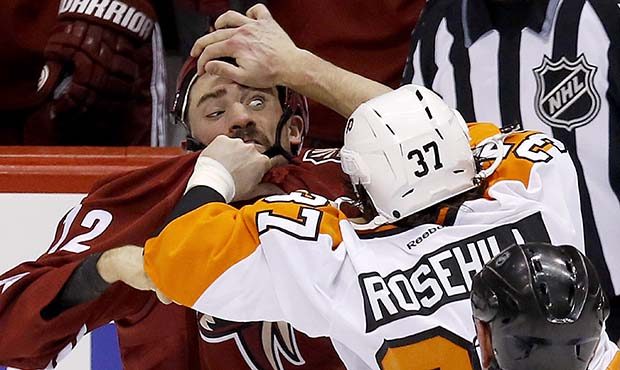
Philadelphia Flyers' Jay Rosehill (37) gives Phoenix Coyotes' Paul Bissonnette, left, a hand to the face as they fight during the second period of an NHL hockey game Saturday, Jan. 4, 2014, in Glendale, Ariz. (AP Photo/Ross D. Franklin)
(AP Photo/Ross D. Franklin)
SCOTTSDALE, Ariz. – Paul Bissonnette just wrapped up his first season as the Coyotes radio color analyst and team ambassador. His impact on the franchise, the Coyotes community and the greater hockey community was bigger than those narrowly defined roles suggest.
As of late last week, his documentary, “BizNasty Does BC,” had more than 7.5 million media views, The Bachelor Report was an immensely popular feature on the team’s website (more than 500,000 views across the team’s social platforms) and his work on the radio with play-by-play man Bob Heethuis received rave reviews from the fan base while garnering him numerous interviews with media outlets across North America.
I caught up with Bissonnette, 33, for a Q&A on his first season behind the mic, his budding and multi-faceted media career, his Odd Couple relationship with Heethuis and what’s next.
What did you imagine your life would look like after your NHL career ended?
Bissonnette: “I was in an odd situation where I didn’t play much, but I was in Arizona where they kind of let me be myself and tweet. Some of the stuff I would say on Twitter, no one is getting away with that, especially in a different organization. That allowed me to expand the Twitter thing and it opened other doors to opportunities as far as media, even when I was playing. Some people think I should have retired and done what I’m doing now as soon as I finished playing in the NHL. I went away for a couple years when I was in the AHL. I wasn’t even tweeting much, I shut it down, but I was having fun playing and I still wanted to play. I could always do media and I knew I wanted to, but once you’re done playing you’re done playing.
“It was good timing. I kept in touch with [Coyotes Executive Vice President of Communication and Broadcasting) Rich [Nairn] and was fortunate enough to get the job. Rich said, ‘When you’re ready just let me know.’ When I tore my first ACL last year I said, ‘Hey, I think it’s time.’ We met and got the ball rolling and then when I tore my other ACL, it was like, ‘OK, for sure. Sign me up.’”
Why did you want to join the media?
Bissonnette: “I always had fun with media while I was here. I loved chatting with you guys. It also helped me in Arizona that you guys weren’t as critical of players here (smiles). There’s not much backlash. It was nice to gain those relationships with you guys and maintain them and it was an easy transition to come back where I already knew you guys.”
What were your expectations for this first year?
Bissonnette: “I thought it was going to be fun. Did I expect it to go as well as it did? No, but the fact that the team did a lot better in the second half of the season made it a lot easier, too. Overall, it was just fun this year because the Coyotes are in a non-traditional market where they have to do other things to entertain fans like Vegas does with their pregame ceremony. I understand if you’re a traditional hockey fan you might not like that, but in that market, it works because American fans want that. It’s a business and financially you see it’s working there. All these teams down south that want to stay in that traditional box, if you don’t have a team that is winning every year and making Cup appearances, you have to add that to your bag. It’s a no-brainer. This is still entertainment. People want to be entertained.”
Was it difficult to transition to an analyst role when you had played with some of these guys?
Bissonnette: “The start was the hardest part. That game we had in Philadelphia (a 4-3 overtime win on Oct. 30) when we were finally going to win our first game, and they scored those two goals late to tie it up. When that happened, I froze up on the air. I didn’t even know what to say. It was kind of embarrassing but I guess it came off as genuine. I said, ‘Heeter, I don’t even know what to say right now.’ The fact that I haven’t been separated that long made it very difficult to do what I did, but once the team started playing better, it made it a lot more fun and it made traveling with the guys a lot easier.
“Everyone wants to write positive articles or say positive things because it’s a lot more fun, but there’s a point where you have to get a little critical, especially when a team doesn’t win a game in regulation in the first month. I would say I threw my credibility a bit out the window this year, but I don’t think that’s what they want me to bring anyway. A guy like you has to be the bad guy sometimes and that sucks. I have no problem ripping guys in different organizations, though (laughs).”
What was it like working with Bob Heethuis on the radio?
Bissonnette: “I love the structure of my job. I love working with Heeter. He’s extremely well prepared. He keeps me calm and prepared with pregame notes. We had good chemistry. He always had the statistical side of things and I would know he’d have it so I would make a comment and he would back it up with accurate information. He would make me look good, which was great.
“We’re such a contrast. He’s so old-school and he’s such a nice person. He’s like a choir boy where he’s had nothing in his life to bring him to the dark side. I swore one time on the radio and he was like, ‘oh, my God!’ It was like the worst thing that ever happened to him. It was funny.”
How did the documentary come about and why did you want to do it?
Bissonnette: “I’m a bit of prisoner of my own mind. It never stops racing so I have to constantly stay stimulated and do things. Last summer when I retired, I reached out to my friend [Pasha Eshghi]. I knew it could be a fun project. It happened bit more organically but once I got involved, now I’m obsessed with it. I’m like, ‘let’s get it from this angle, let’s do it with this lens.’ I’m addicted to learning all the things that help make it better quality. Some guys are OK with a shaky camera, throw it up there, get the views. I want quality. Me and my buddy wrote, produced, edited, did everything, implemented the music, did narration. It was a learning experience.
“I didn’t know how it would go because I’m still not good at pre- and postgame television. I’m not ready for television. I still need to work on that. I didn’t know if I could do media so I didn’t even know if I came in the first 20 games and I bombed it if they would be like, ‘Hey, listen, we’re going to yank you off radio and put you in this role,’ but I thought this project would be fun and it has opened up more doors.
“I like to entertain. Some people might not find my type of humor funny and that’s fine, but I wanted to give hockey fans a treat. Some of these hockey players do have personality so it was like, here’s a fun little script. Let’s keep this thing going. Give us some positive feedback, show people this is the kind of stuff you want and then let’s make a bigger one, a better one, a bigger production with a different storyline. I kind of like acting, too. Am I great at it? No, but it’s fun to try it and I want to see if I can get better at it.”
During your career, did you have trouble focusing on playing because of that racing mind?
Bissonnette: “Yeah. My mind was racing in so many places even when I was playing. I would have talks with [former coach Dave Tippett] about it. I don’t think you can help who you are and I don’t regret it. I was fortunate to play as long as I did. If I would have lasted another two years in the NHL and then not had this side, I’d maybe have a little bit more money in the bank but to me, what is happening now and the way I’m trying to advance the second part of my life, which is going to be way longer than the hockey side, I am grateful for it. No regrets.
“I think Tip just didn’t understand it, which is fine because he’s a genius hockey mind. He is so absorbed with hockey. I think he was actually surprised one time when we sat down. He was like, ‘do you even watch game tape?’ I was like, ‘Tip, I play 10 shifts a game. I can tell you the way every shift went. I sit up in my hotel room and go over it.’ I think he was surprised at how big of a thinker I was about it, but ultimately, I got where he was coming from as far as the focus. The funny thing is, he actually saw the documentary and was surprised by it. I said, ‘Yeah, that’s probably why I was always so distracted because I was thinking about weird stuff like that.’”
What do you try and accomplish with your internet presence on the Coyotes website?
Bissonnette: “It’s not earth-shattering but we’re trying to grab personality out of these guys and do funny segments like The Bachelor. It takes 30 minutes after practice to do that report and fans get to see some of the guys’ personalities. They can monetize that and sell ad space and everybody wins. I want to have fun with everyone but I don’t want to make it too much about me. Sometimes, people just want to laugh and get my side, but I wouldn’t want people to think it’s about me. I’d rather fly under the radar, do the funny [expletive] and then disappear. I actually get a little bit of social anxiety sometimes. Even this interview, I think, ‘Really? People actually give a [expletive]? Why?’”
Do you think the NHL still fights the idea of marketing individual personalities because of its team-first culture?
Bissonnette: “I think teams and GMs are becoming more and more receptive to it, especially with younger GMs coming in. I think the league is finally starting to realize, like the NBA, that if they brand individual players, even if somebody is a casual fan, it sells the game. If somebody follows Max Domi on Instagram and they like the way he dresses or how he’s so involved with diabetes, all of the sudden, you’ve got people tuning in for the individual aspects instead of the game to see how is Max Domi is doing? Who cares why they are watching the game. Just get them watching.
“I think there’s a happy medium to be met and it’s getting there but we’re still behind other sports. This new generation I think wants to self-promote and they are totally down with it, but there’s still the brass and older guys on the team that frown upon it and are skeptical. You can see it happening with guys like Mitch Marner and Auston Matthews, all these 20-year-olds are on social media and posting. I think in five to 10 years the NHL will be where it should be.”
What irks you most about fan interaction?
Bissonnette: “Not much. I’m a bit of a clown but when it comes to hockey issues I would say I’m pretty open-minded. You saw me going nuts on the Zac Rinaldo thing. I knew he was going to get suspended and he wasn’t going to get the benefit of the doubt, but he laid a clean hit and a guy came at him. In hockey and in his head, he’s assuming that guy is coming to fight him which I think he was and he just changed his mind. The problem is, you have some casual fan coming at me and telling me, ‘No, this is how it is and I don’t know what I’m talking about.’ At least take my point of view and say maybe I’ve got some insight. Don’t just dismiss me. To me, that’s insane because I have been in that situation. I won’t tell you how to work a half wall on the power play but at least let me give you my two cents on the way that was broken down. Sometimes, that’s where I get a bit frustrated. “
Why do you think you’re so popular?
Bissonnette: “I’ll talk to anyone. If you want to sit down and shoot the [expletive], I don’t mind. It’s still surprising to me that people want to talk to me. I guess that just shows how starving people are for content in the NHL and for personality, where some fourth-line, irrelevant player that sat out more games than he played when he was in the NHL is getting media requests. It’s probably not a good thing overall for the league, but I’ll take it.
“I think a lot of people can relate to me because the whole time I played in the NHL I was like ‘Holy [expletive], I’m in the NHL’ and I wanted people to get an inside look at how spoiled we are and how cool it is. Every time I stepped on the plane and we had a plate dropped in front of us it was kind of like, ‘This is so cool.’ If anyone comes up and says ‘hello’ I’ll say ‘hello’ and shake their hand and chat with them. I think I’m just relatable. That helps my cause.”
What’s next on the project front?
Bissonnette: “I want to keep doing radio. I love working with Heeter, but I’m in talks to do another documentary, “BizNasty does Muskoka” (Ontario). By the way, for anybody reading this, I understand it’s a little (expletive) to still have a nickname BizNasty, especially as a grown man. I can’t really shed it now. It’s so (expletive), but I’m a happy-go-lucky guy in the sense that I can get ripped on and laugh so I’m OK with it. Anyway, this summer, I’m going to write the script and a few companies have already reached out to give funding for it so we’re just trying to work out all the contracts which I’m not great at. I let others handle that.
“Some stuff on the last doc was a little bit stressful because we did it guerrilla style. We were running around because we didn’t want to take too much of the players’ time and we didn’t have the budget. I hope the next one is more organized.”
What is your reaction to the public reception of your work?
Bissonnette: “It’s nice being rewarded and seeing people are happy with it. I want to strike when the iron is hot because at 45, I don’t think this schtick will be really funny. Maybe I’ll plateau in four or five years. Maybe in five years, there will be another guy who is funnier and I can do another project where he is the center of attention. Any time you can keep moving and opening doors it’s not a bad thing. I get one chance at life so I want to do as much as I can.”

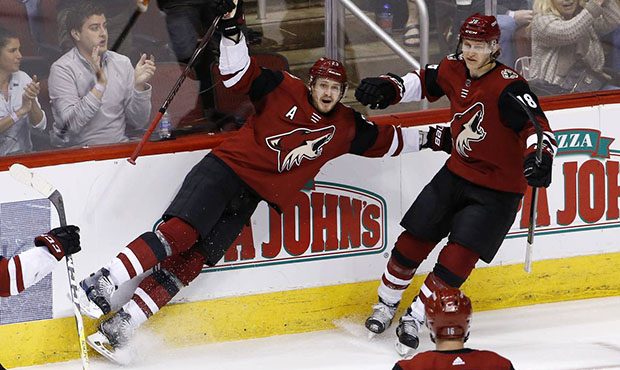
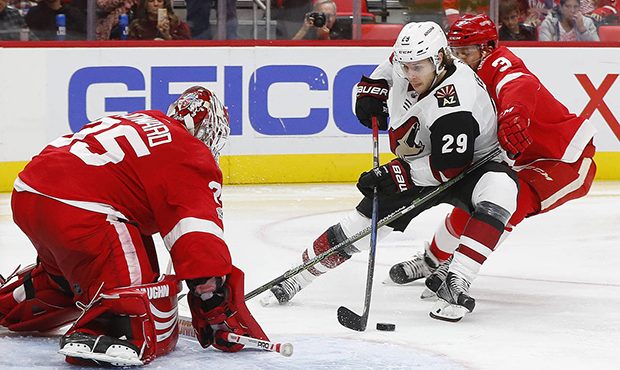
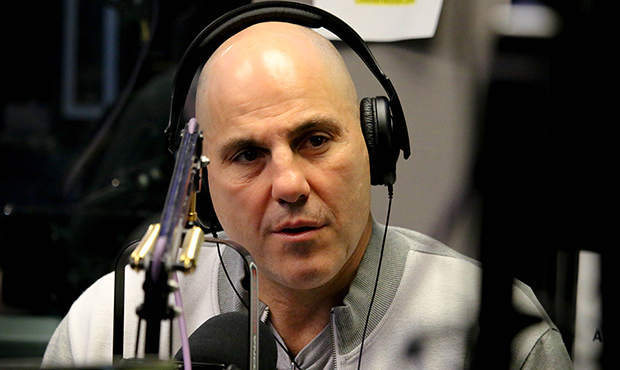
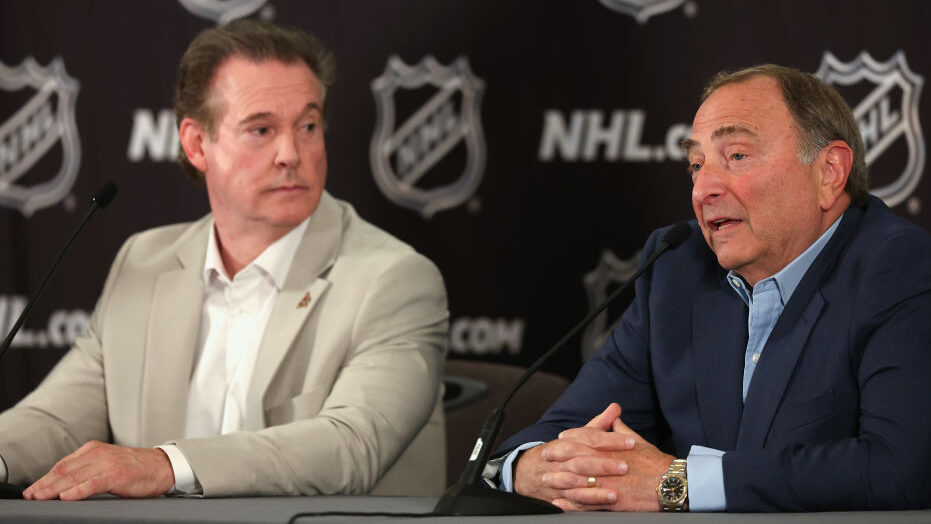
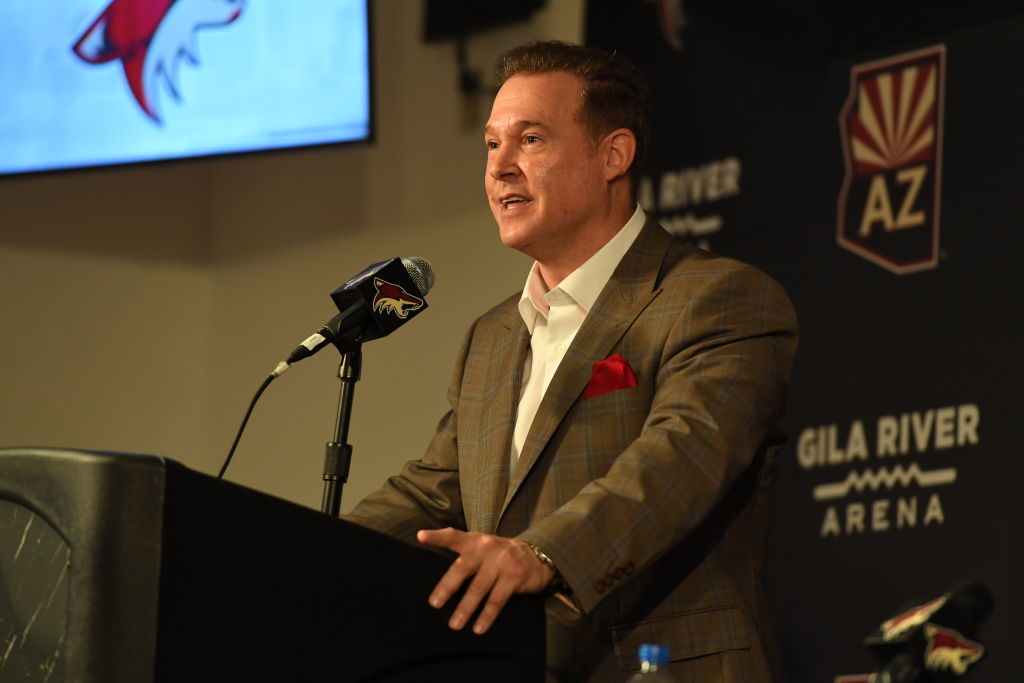
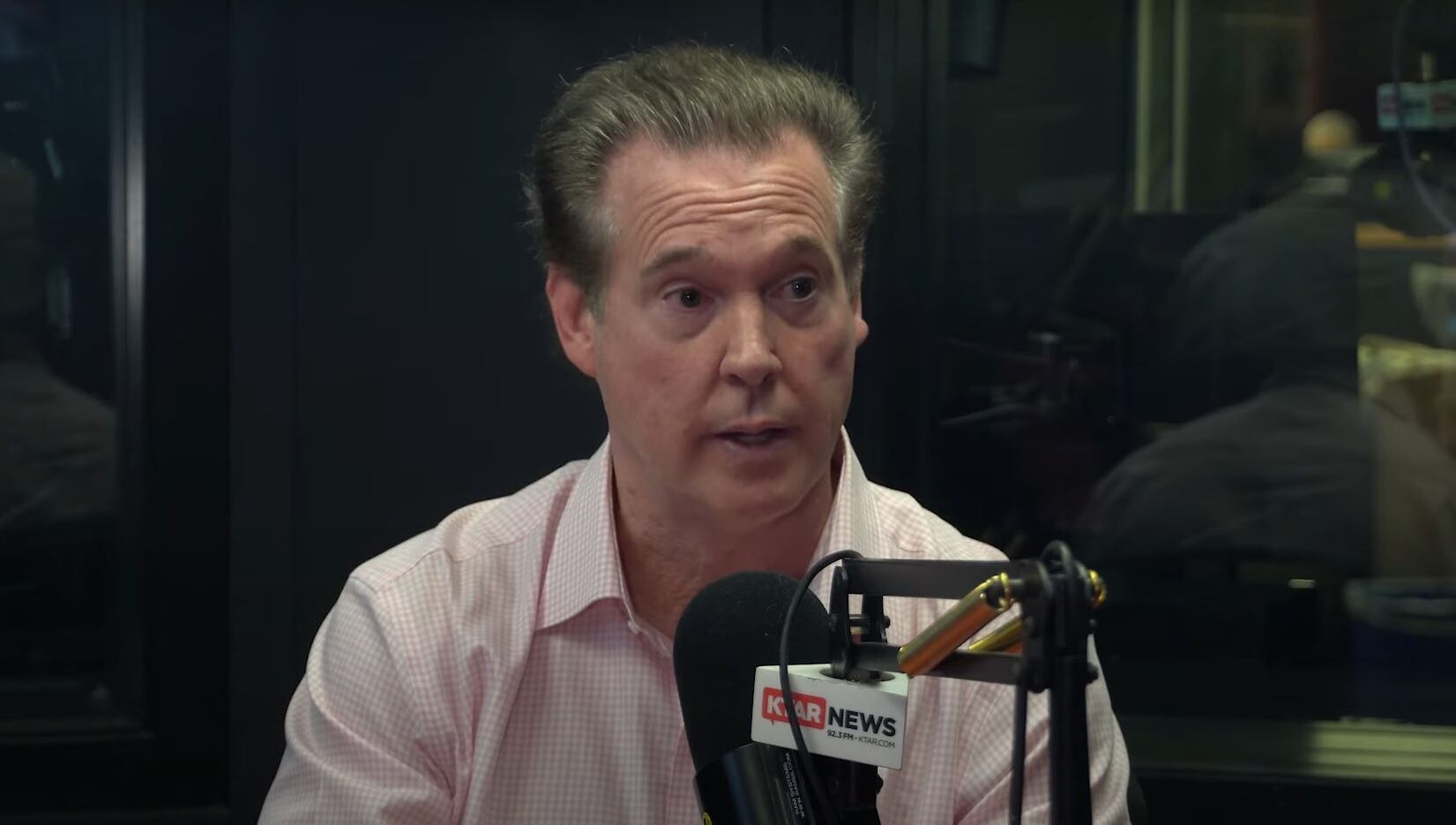
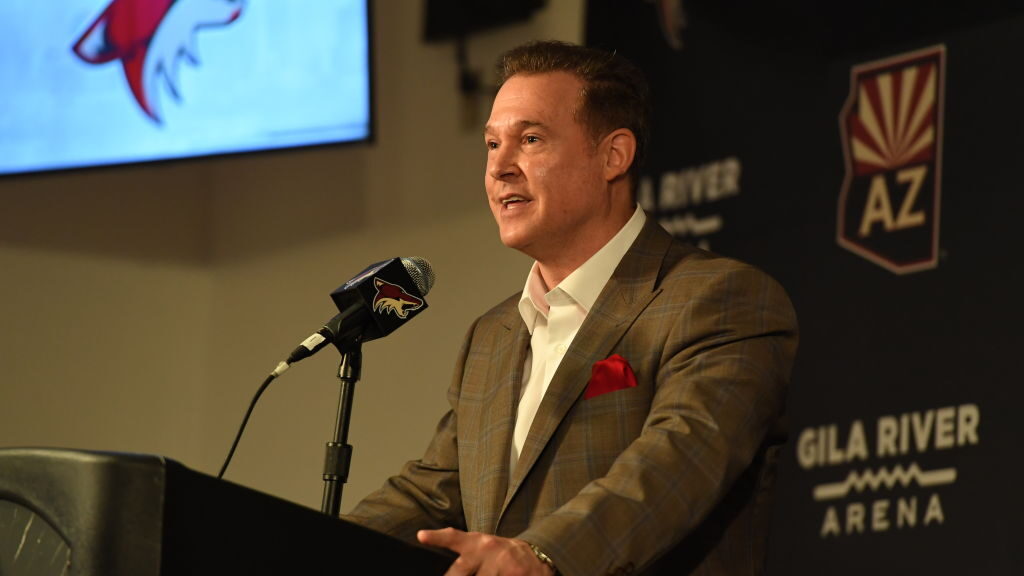
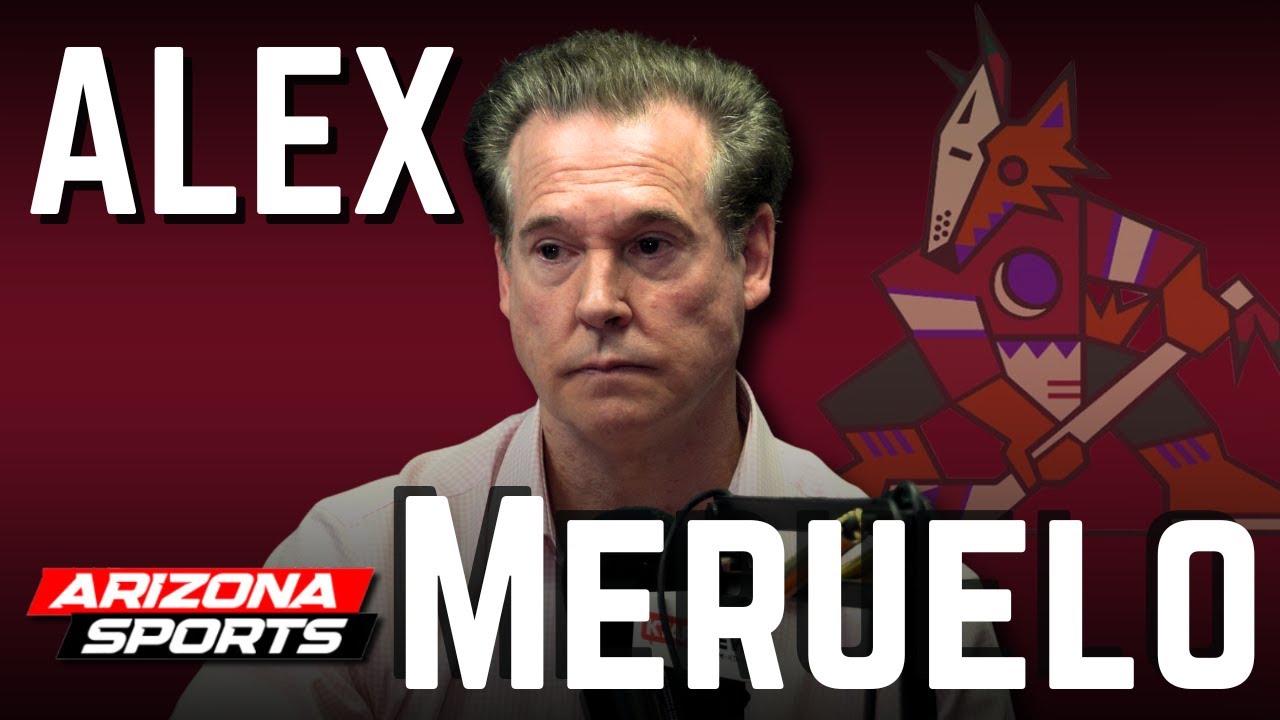
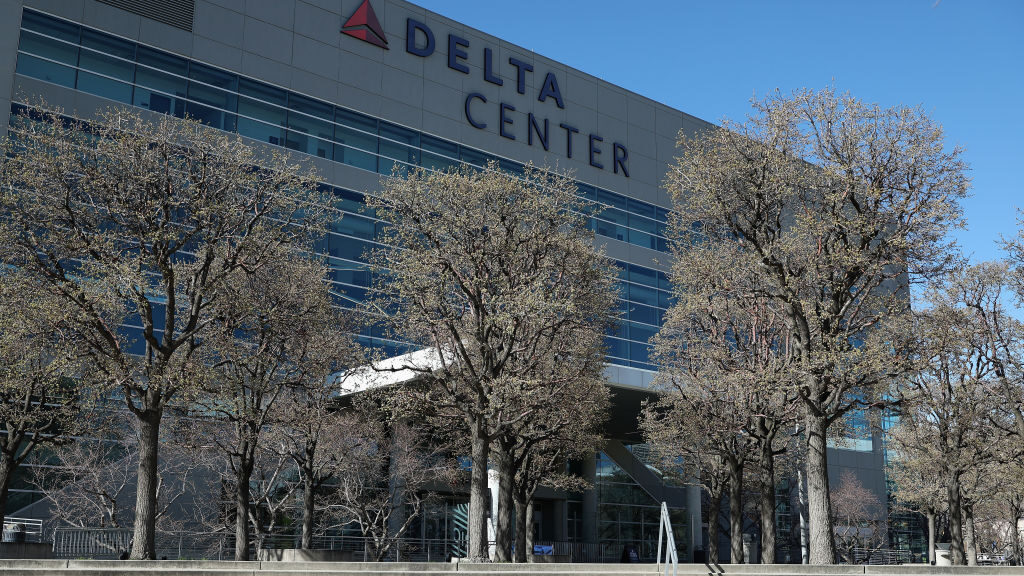
Comments